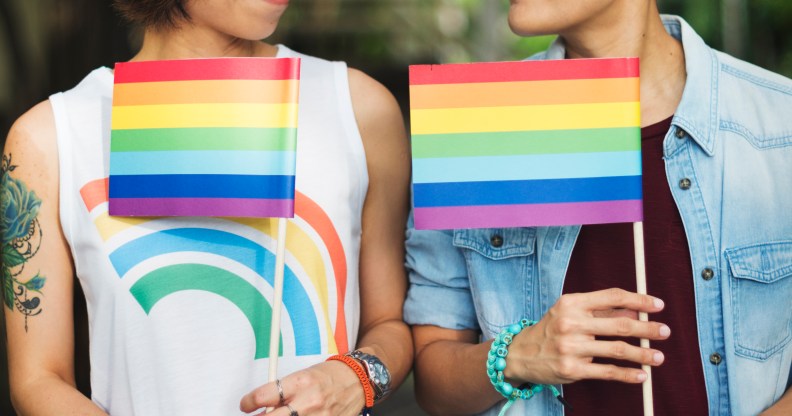Most countries have shown increased acceptance of LGBT people since 1981, but in these places it’s gotten worse

In the least accepting countries, attitudes are getting worse. (Envato)
The majority of countries have shown an increase in acceptance of LGBT+ people between 1981 and 2017, but for the least accepting countries attitudes are getting worse, a study has shown.
The report from The Williams Institute analysed data on policies and attitudes towards LGBT+ people from 174 countries to produce the Global Acceptance Index (GAI), which ranks countries from most to least accepting.
Generally the results were positive and showed a global trend towards greater acceptance of queer people, with 131 countries showing increased acceptance since 1981.
Andrew Flores, a visiting scholar at The Williams Institute and the study’s lead author, told NBC: “One of the biggest misconceptions, even among people in the US, which has seen a notable amount of progress in LGBT acceptance, is the notion that attitudes have not changed or haven’t improved, but this report disputes that idea by showing us the opposite: Acceptance of LGBT people continues to grow globally.”
However, in countries that have historically been the least accepting attitudes are only getting worse, with 16 countries seeing a increasingly negative attitudes towards LGBT+ people and 27 experiencing no change over the 36-year period.
The report states: “The countries that were the least accepting in 2014-2017 were Ethiopia, Azerbaijan, Senegal, Tajikistan, and Somaliland, and they each became less accepting since 2000.”
The specific reasons for the decline in acceptance are unclear, and the report said that more data and research is needed to build upon the GAI.
It said: “The most prominent theory, the one of backlash, would suggest that there would have to be some form of advancement of LGBT rights in order for a negative downturn in public acceptance.
“The GAI could be used to test the hypothesis of backlash and increase understanding of these unique trajectories.
“Additionally, studies could investigate how trends in nationalism or religious fundamentalism may reduce LGBT acceptance, as such factors are associated with prejudicial attitudes toward societal out-groups.”
A GLAAD survey also found that young people in the US were the only group to show a decline in acceptance of LGBT+ people this year, which it said could be down to divisive rhetoric in the Trump era and the “newness” of certain labels.
The Accelerating Acceptance Index found that 36 per cent of young Americans felt “very” or “somewhat” uncomfortable learning a family member is LGBT+, compared to 29 per cent in the 2018 report.

